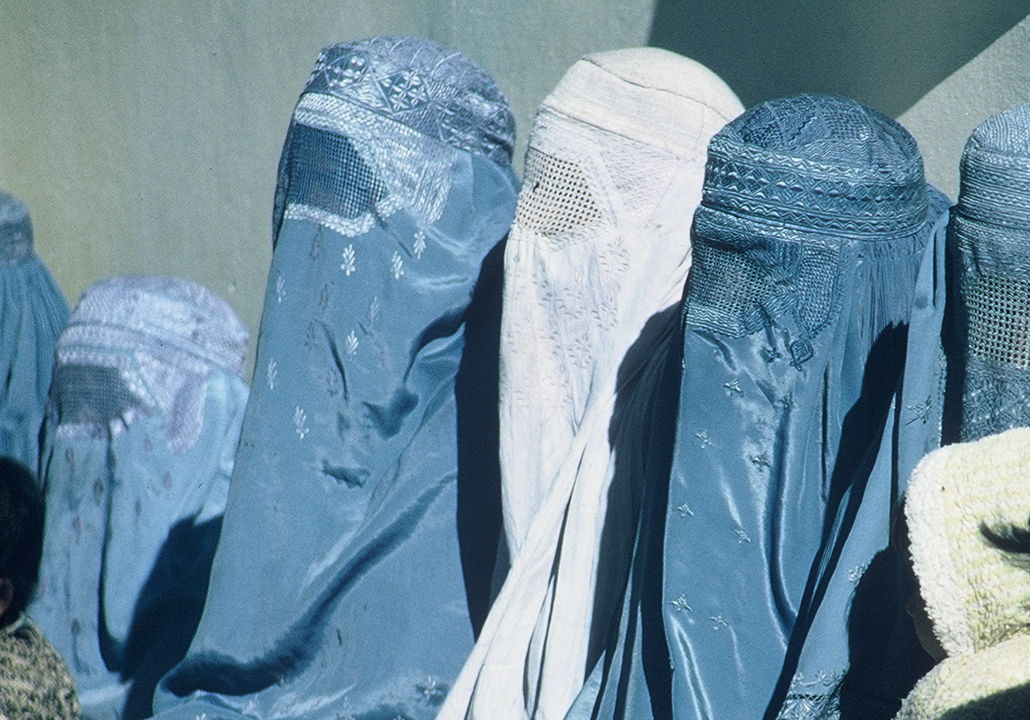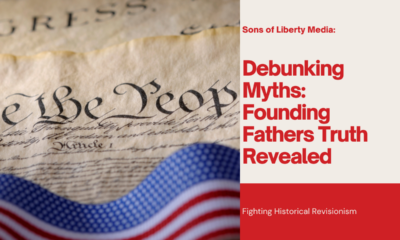Civilization
Women Bear the Brunt of Religious Freedom Abuse
Citing several cases worldwide, the authors show that women suffer the most when societies curtail religious freedom.

Since women account for over half of the world’s population, activists, NGOs, and governments must incorporate gender perspectives when addressing religious freedom violations.
Women and girls worldwide face violations of their religious freedom or belief (FoRB). They confront these violations as mothers, wives, family members, workers, organizational leaders, civic leaders, advocates, and volunteers who serve and cultivate healthy communities. Some of these violations are similar to those men and boys experience: Governments harass and imprison them and state and non-state actors commit physical violence against them.
In addition, women and girls confront violations that are unique to their gender identity that are frequently reinforced by their social-economic status and cultural norms. These include torture, rape, abduction, forced marriages, abortions/sterilizations, conversions, and renunciation of their faith. Women and girls thus face compound persecution and are further marginalized within often already marginalized and persecuted communities.
Family and/or community members frequently are the perpetrators and their violations are especially difficult to uncover because they oftentimes take place in the home and out of sight. These violations frequently are not reported or are under-reported and the perpetrators are less likely to be held accountable than those who commit violations against men.
Governments also commit and/or tolerate many of these violations. Authoritarian regimes often feel threatened by women and girls who, despite their marginalization, are key to the strength and continuation of families, communities, and cultures. As minorities, women and girls also make easy targets for these regimes when their control is on the line.
Here are just a few examples of countries in which despite being targets, women and girls are leading efforts for systemic cultural and political change:
Afghanistan. Since the Taliban seized control of Afghanistan in August 2021, the government has implemented a strict interpretation of Sunni Islam with the goal of excluding Afghan women from public life. Thus, the freedom of religion or belief of women and girls especially has dramatically deteriorated. Over half of the Taliban’s religious edicts and degrees have severely restricted their access to education, healthcare, employment, participation in sports, freedom of movement, and how they dress. The Taliban has forced women to wear in public “all-encompassing loose clothing that only reveals their eyes,” with the “morality police” harassing and threatening women who are out of compliance with this religiously-inspired restriction.
China. With deteriorating religious freedom conditions in China, religious minorities have been especially impacted, and women and girls who are members of these communities are particularly vulnerable, including Uyghurs and other Muslims, Tibetan Buddhists, underground Catholics, and house church Protestants. For example, China continues its brutal campaign of repression against Uyghurs and other ethnic minorities in Xinjiang, with women facing systemic repression given the government’s goal of eliminating the Uyghur cultural and religious identity.
The U.S. determined in January 2021 that the Chinese government’s treatment of Uyghurs and other Turkic Muslims constitutes genocide and crimes against humanity. Uyghur women face surveillance, forced sterilizations and IUD implantations to slash birth rates; physical and sexual abuse; forced labor in camps where they undergo weekly bodily checks and receive unidentified injections to stop their menstrual periods; and forced assimilation. Outside of the camps, Uyghur children have been separated from their mothers and sent to boarding schools where they are taught exclusively in Mandarin Chinese, and Uyghur women are pressed not to wear a religious veil(hijab). A government-supported company in Xinjiang created a matchmaking app to set up single Uyghur women with Han Chinese men, another deliberate attempt to assimilate Muslim Uyghurs into the dominant Han Chinese population.
India. In recent years and under the government of Prime Minister Narendra Modi and the ruling Bharatiya Janata Party (BJP), religious freedom conditions in India have deteriorated, especially for Muslims and other religious minorities. Women in particular are affected by these conditions. For instance, Muslim women face discrimination and harassment at the state and local levels. The government has implemented policies requiring women to remove their head scarfs or not attend school, with the wearing of any religious garb banned in one state, and released some men who were part of a Hindu nationalist mob: They had been convicted of raping a pregnant Muslim woman and attacking her family.
Many states in India also criminalize religious conversions in various circumstances and disproportionately target Christians and Muslims, with the goal of preventing interfaith marriages or relationships, including so-called “Love Jihads,” a derogatory term targeting Muslims. The Internet also poses its own unique set of dangers. For instance, before it was shut down, an Indian website sought to auction off Muslim women who publicly had opposed Hindu nationalism and how the government treated religious minorities.
Iran. Women and girls have been distinctly impacted by the deteriorating religious freedom conditions in Iran, and the government uses its singular religious interpretations to severely restrict their freedom of religion or belief. For instance, the government uses religious interpretations to justify lighter punishments for “honor killings” of women versus other homicides. Security forces arrest, detain and commit violence against women and girls who, especially after Mahsa Amini’s murder in September 2022, have led and participated in peaceful protests against the increased enforcement of the mandatory head scarf laws and other religious freedom violations. The government also has escalated its pattern of persecution of the Baha’is. Increasingly, it is targeting Bahai women specifically, detaining them and issuing long prison sentences based on their faith.
Nigeria. Religious freedom conditions for Nigerian women and girls remain poor given cultural norms and violations committed by the government, nonstate actors, and criminal gangs. Conservative and patriarchal religious beliefs and practices in both Islam and Christianity mean that men hold most positions of power in the country. Women and girls often are the most adversely affected by the daily violations that state and non-state actors face due to their gender, ethnicity, faith, challenging economic status, and often restrictive cultural norms. Non-state actors, including Boko Haram, ISWAP and Fulani militias, commit atrocities daily, with these atrocities increasing in number and taking place both in the south and north. Non-state actors, along with criminal gangs, bomb, burn, and destroy places of worship; as is often the case when houses of worship are attacked, a large number of the dead and injured are women and children.
Deborah Emmanuel Yakubu, a 19-year-old Christian girl accused of blasphemy by her Muslim school mates, was stoned to death in May 2022. Only two people were arrested for her murder, despite her killers not even bothering to hide their faces in the video they released on social media, and were released.Non-state actors also abduct women and girls who are forcefully converted to Islam and marry them off or force them to become sex slaves when they refuse to convert. Along with the violence committed by non-state actors, Nigerian women and girls confront threats from the government due to blasphemy charges and convictions. For example, the government arrested, detained incommunicado, and denied bail to Rhoda Jatau, a health care worker, for sharing what they alleged was a blasphemous video on WhatsApp, condemning the lynching of Deborah Yakubu. Following international outcry, she was finally granted bail in December 2023, after having been imprisoned since May 2022.
In this new year, let’s acknowledge the courageous women working in these and other countries who are deeply committed to freedom and the well-being of their communities. As they demonstrate resilience, let us ask: How can we walk beside them to accelerate the urgent work they are doing?
This article first appeared at FoRB’s website on Jan. 10, 2024.
This article was originally published by RealClearPolitics and made available via RealClearWire.
-

 Executive4 days ago
Executive4 days agoSecret Service chief gets no solace
-

 Executive3 days ago
Executive3 days agoWaste of the Day: Louisville Taxpayers Pay Nearly $600,000 For Empty Building’s Maintenance, Security
-

 Guest Columns4 days ago
Guest Columns4 days agoFear Itself: Democrats’ Favorite Strategy Caused Their Current Chaos
-

 Executive3 days ago
Executive3 days agoWhere is Joe Biden – or Jill?
-

 Executive1 day ago
Executive1 day agoWaste of the Day: Throwback Thursday: Cities Used Crime Prevention Funds on Soccer Games, Paper Shredding
-

 Executive2 days ago
Executive2 days agoFacile and politically motivated suggestions
-

 Civilization4 days ago
Civilization4 days agoBuild Iron Dome in the United States To Prepare for Israel’s Worst Day
-

 Executive4 days ago
Executive4 days agoThe Emerging GOP Plan To Beat Kamala Harris













